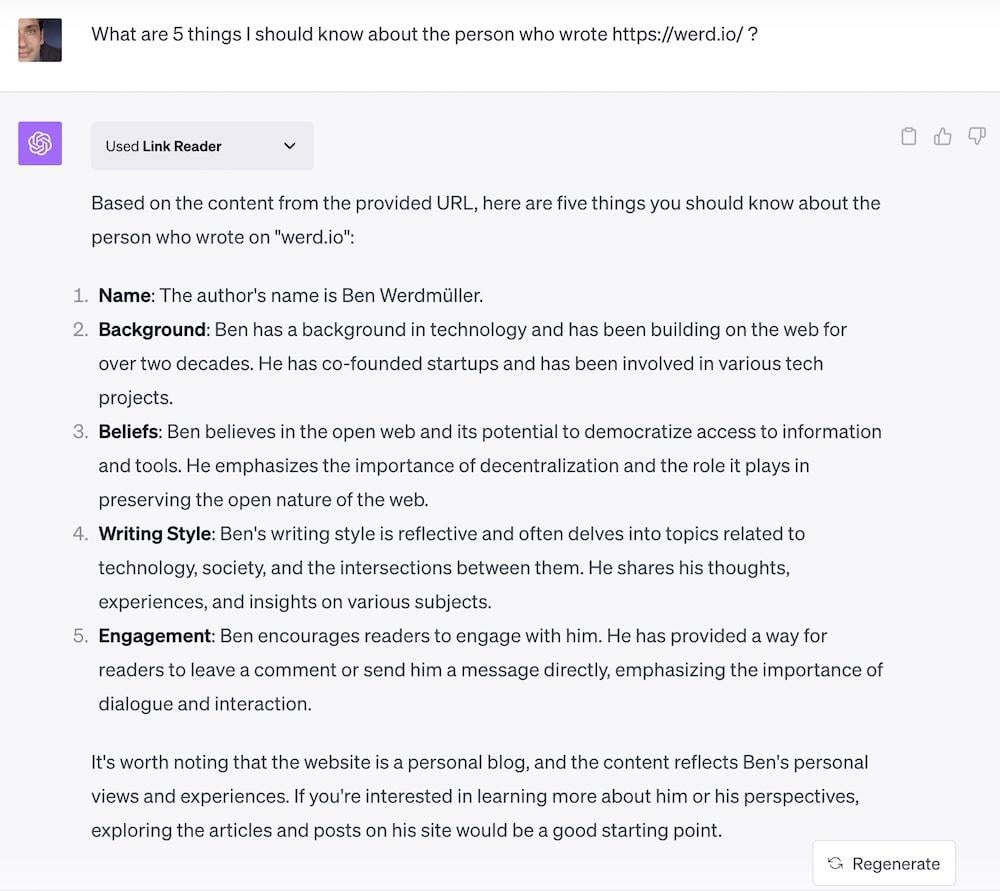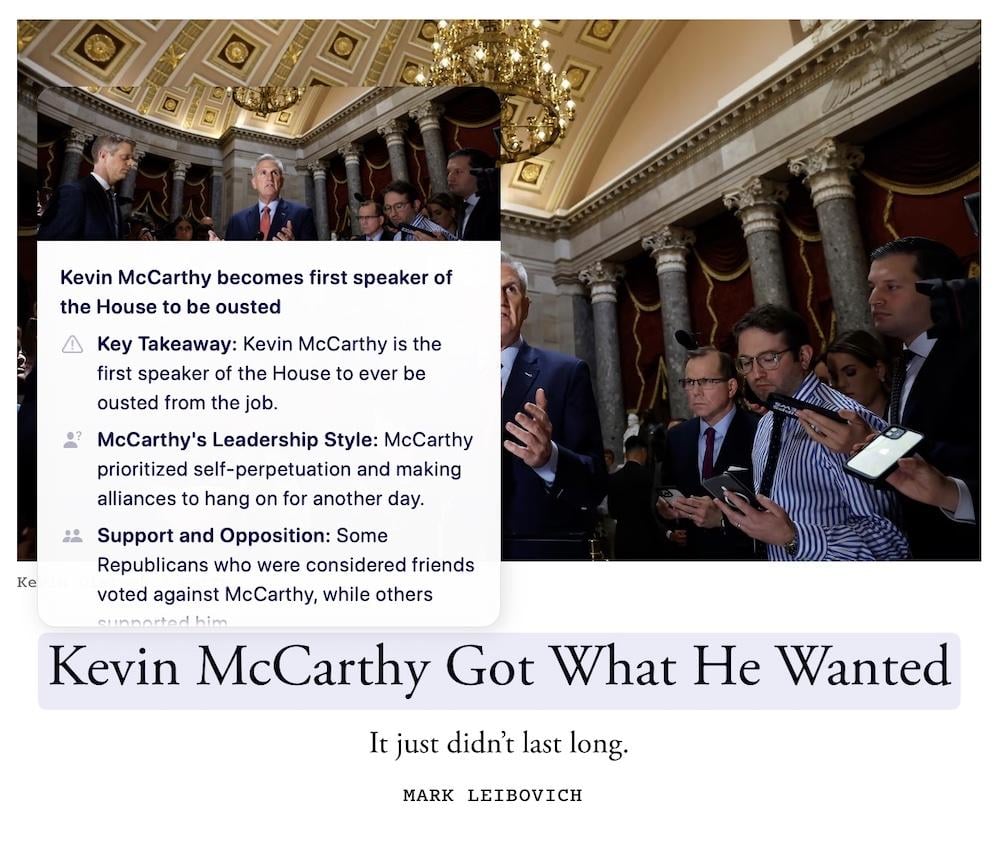Arc, my default browser for a year now, recently launched a set of AI-driven features. I’m finding two to be particularly useful — and one of those is problematic in a way I want to discuss. They’re worth considering because, while Arc has a relatively small userbase for now, they’re likely to come to other browsers before too long.
The first is AI-enhanced search. If I hit command-F, the browser will try and find my search term in the page as it normally would. If it can’t, it’ll answer a question about the content of the page using AI.
As an illustration, here’s Arc answering a question based on a Verge article:

The second is AI summaries of links. If you hit shift and hover over a link, it’ll tell you what the page is about. Here’s Arc previewing a link from my website:

This is both useful — I don’t necessarily want to open a new tab to look at a cited source — and potentially really problematic for a lot of the web. This isn’t unique to Arc: the feature is not markedly different from, say, ChatGPT’s browser capabilities, which is similarly problematic. Here’s ChatGPT answering questions about my website:

If you’re getting an automated summary of an information source, you’re extracting the content without thought for how that source sustains itself. For some, that will be display ads. I don’t really care for ad-driven business models, but they exist, and if a significant number of people suddenly start looking at AI summaries instead of an actual page, ad revenues will drop proportionately. For others, it’ll be donations — and AI summaries don’t have any calls to action to contribute. And some, of course, sit behind a paywall. The AI summaries appear to even summarize content that would otherwise be irretrievable without payment.
Here’s Arc summarizing a paywalled article from the Atlantic, for which I don’t have a subscription:

It’s honestly really useful for users, but not super-great for the web ecosystem or the survival of those platforms.
I’m not necessarily suggesting that browsers discontinue these sorts of features. But I do think there needs to be some consideration for platform health and ensuring that the information sources we use on the web can continue to exist. So here are some ideas:
Inline calls to action. Browsers could look for markup in the page that indicates a call to action that a user could take — for example to subscribe or to donate. This could be an ad.
A universal basic paywall. Publications register to receive aggregate payments from browsers that use their content to create summaries. (Itself problematic because it essentially requires every publisher on the web to reveal their identities — unless you use crypto, which has its own issues.)
Allow publishers to set their own summary content. Not every summary needs to be written using AI; metadata in the head could provide a publisher-written summary, giving them control over what is displayed.
A general small web publisher fund. Rather than direct micropayments, browsers pay into a general fund that small web publishers can withdraw from.
Just accept that this is what the web is now. Last but not least: passive acceptance. It’s not great, particularly when browsers are largely manufactured by tech companies like Google that already make a ton of money extracting value from the web. The drop in direct pageviews could adversely affect smaller publishers in particular. But it’s also early — perhaps it will have a different effect on site visits than I think?
But these are my opinions. I’m aware that my lens here is oriented around the perceived needs of publishers on the open web. What do you think should happen? How will the ecosystem adapt?


 Share this post
Share this post

